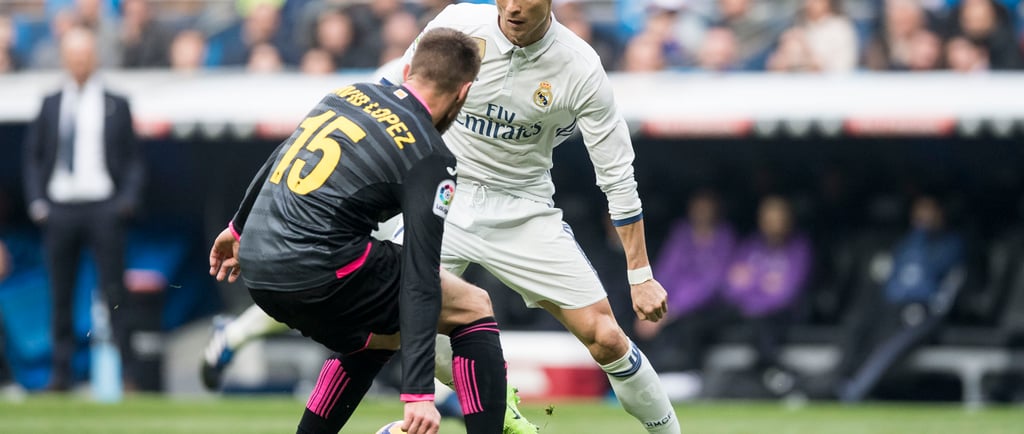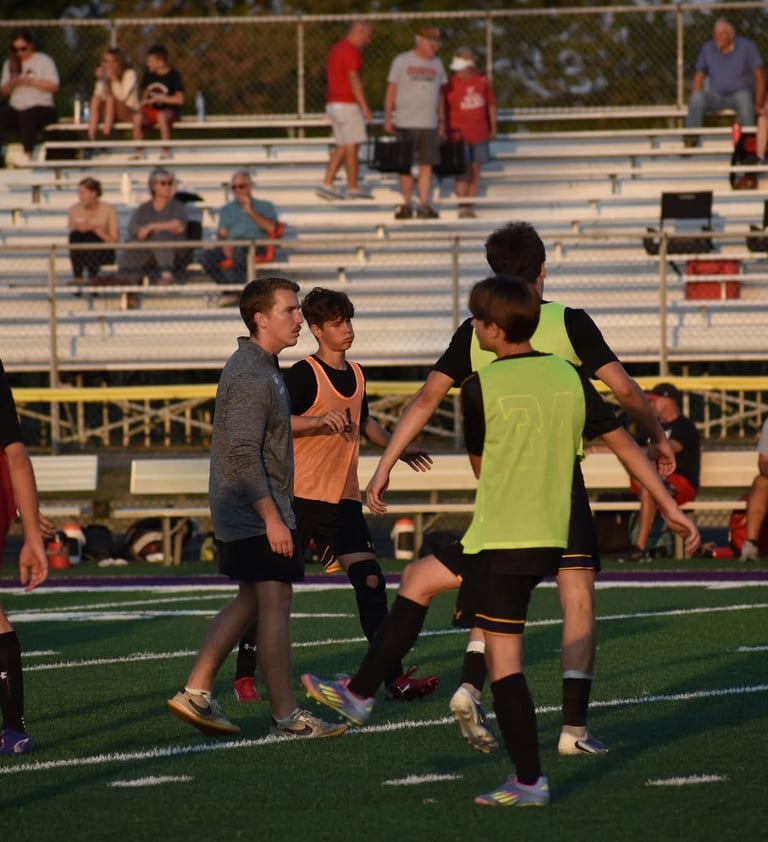The 3 Most Overlooked Skills in Soccer (And Why They Matter)
When players and parents think about “important soccer skills,” the first things that usually come to mind are flashy dribbling moves, powerful shots, or blazing speed. While those things can grab attention, the truth is that the game is built on the fundamentals — the small details that separate good players from great players.
10/23/20254 min read


The 3 Most Overlooked Skills in Soccer (And Why They Matter)
When players and parents think about “important soccer skills,” the first things that usually come to mind are flashy dribbling moves, powerful shots, or blazing speed. While those things can grab attention, the truth is that the game is built on the fundamentals — the small details that separate good players from great players.
Too often, players spend hours working on stepovers or fancy tricks while neglecting the skills that actually impact every touch of the ball. The result? They look great in practice but struggle to make a difference in real games.
In this blog, we’re going to break down the three most overlooked soccer skills that every player should master:
First Touch
Scanning
Communication
We’ll cover why these skills matter, how they impact the game, how to train them, and how parents and coaches can help young players develop them.
Why Fundamentals Matter More Than Flashy Skills
Soccer is a simple game at its core: keep the ball, move it quickly, and create opportunities to score. The players who thrive at higher levels are not always the ones with the fanciest tricks — they’re the ones who consistently make the game look simple.
A clean first touch buys time and space.
Constant scanning allows faster, smarter decisions.
Effective communication turns individuals into a team.
These fundamentals don’t always show up on highlight reels, but they show up in the scoreboard, the coach’s lineup, and the player’s long-term development.
Overlooked Skill #1: First Touch
Why First Touch Is So Important
Your first touch is the foundation of everything in soccer. It determines whether you keep possession or lose it. A poor first touch forces you into pressure, while a good one sets you up for success.
Imagine two players receiving the same pass:
Player A’s touch bounces away, and they scramble while defenders close in.
Player B cushions the ball into space, already setting up their next move.
Player B instantly has an advantage, even if Player A is faster or stronger. That’s why professional coaches say: your first touch decides your future in soccer.
How to Improve Your First Touch
Wall Work: Pass against a wall at different speeds and angles, focusing on controlling with the inside, outside, and sole of the foot.
Aerial Control: Toss the ball up and control it out of the air with thighs, chest, or feet.
Directional Touches: Don’t just trap the ball. Cushion it into space where you want to go.
Overlooked Skill #2: Scanning
What Is Scanning in Soccer?
Scanning is checking your surroundings before you receive the ball. It’s the act of looking around the field to know where teammates, opponents, and space are.
Professional midfielders scan the field every 2–3 seconds, which is why they seem to always “know” where to pass before the ball arrives.
Why Scanning Matters
Faster Decisions: If you already know your options, you don’t waste time after your first touch.
Smarter Play: You’re less likely to lose possession if you’re aware of pressure.
Confidence Under Pressure: Scanning reduces panic because you’re prepared before the ball comes.
How to Train Scanning
Simple Drill: Pass with a partner or against a wall. Before the ball reaches you, look left, right, or over your shoulder, then make your touch.
Small-Sided Games: In training, force yourself to check your shoulder constantly. Coaches can call out “scan” as a reminder.
Film Study: Watch pro matches, especially midfielders, and notice how often they look around before receiving.
Overlooked Skill #3: Communication
Why Communication Gets Ignored
Most young players think soccer is just about technical skill. But communication is a skill that can elevate everyone around you. A player who talks, organizes, and supports teammates often becomes a leader — even without being the best technically.
Types of Communication on the Field
Verbal: Simple calls like “man on,” “time,” “switch,” or “turn.”
Non-Verbal: Hand signals, pointing where you want the ball, eye contact.
Emotional: Encouragement, clapping, positive body language after mistakes.
How to Improve Communication
Start small: Use 2–3 simple calls consistently in training.
Encourage teammates every session. Coaches notice players who lift others.
Don’t be afraid of being vocal. Communication shows confidence, not arrogance.
How Coaches Evaluate These Skills
At tryouts, ID camps, or matches, coaches are not just watching for goals and tricks. They’re looking at:
How clean your first touch is under pressure.
Whether you scan before receiving the ball.
If you communicate with teammates or stay silent.
Coaches know these habits predict long-term success. Flashy moves can fade, but fundamentals win games.
Training These Skills at Home
One of the best things about first touch, scanning, and communication is that they can all be trained outside of team practice.
Backyard or Driveway Drills: Wall passes, juggling, or rebounder work.
Solo Awareness Training: Pretend defenders are around you and practice scanning before every touch.
Family Support: Parents or siblings can feed passes, call out directions, or even act as defenders to force quick decisions.
Why Parents Should Encourage Fundamentals
Many parents get caught up in the excitement of goals and flashy highlights. But encouraging fundamentals gives your child a foundation that lasts.
Praise effort, communication, and awareness as much as goals.
Film games and look for progress in decision-making, not just scoring.
Reinforce the importance of doing the “little things” right.
Common Mistakes Players Make with Fundamentals
Ignoring their first touch because they’re focused on speed or power.
Looking down at the ball instead of scanning before receiving.
Staying silent on the field because they’re afraid to speak up.
The good news? These mistakes are fixable with consistent effort and awareness.
FAQs About Overlooked Soccer Skills
Is first touch really more important than dribbling?
Yes. Without a strong first touch, you rarely get the chance to dribble effectively.
How often should I scan the field?
Ideally every few seconds, especially before receiving a pass.
What if I’m shy and don’t like to talk?
Start with small, simple calls. Communication becomes easier with practice.
Do pro players really focus on these basics?
Absolutely. Watch any professional game closely, and you’ll see constant scanning, clean touches, and nonstop communication.
Conclusion: Fundamentals Are What Make You Stand Out
The three most overlooked skills in soccer — first touch, scanning, and communication — are not glamorous, but they’re the keys to long-term success. Mastering them doesn’t just make you a better player; it makes you more valuable to any team you play for.
👉 At FC Training, we emphasize these fundamentals in every session, both in-person and virtually. If you want to start improving the skills that truly make a difference in games, reach out today to learn how we can help you level up.
Get in touch


